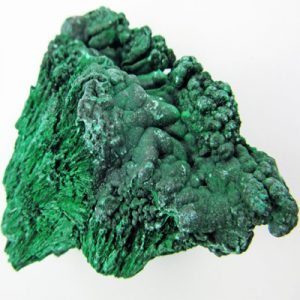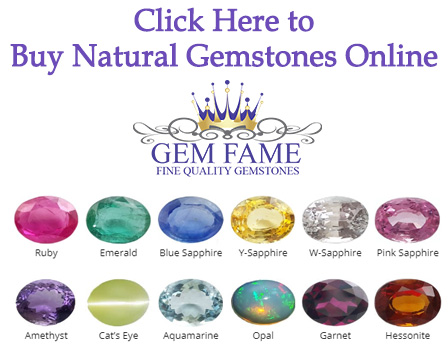Malachite
Malachite is a copper carbonate hydroxide mineral, using the formula Cu2CO3(OH)2. It is one of the most popular semi-precious or decorative stones and has been for many years. This is due to its beautiful, patterned bands of light and dark green, its availability, and relatively low cost. It has been used in jewelry from the southwest as a beautiful accent or combined with Turquoise or Azurite. It is popular as mounted cabochons, pendants, beads, sculptures, boxes and can even be turned on a lathe to make goblets and candlesticks. Facetable crystals are extremely small since larger ones are too opaque. This opaque, green banded mineral crystallizes in monoclinic crystal system, & most often forms botryoidal, fibrous, or masses that are stalagmitic in fractures and spaces, deep underground, where in fact the water table and hydrothermal fluids offer the means for chemical precipitation. Individual crystals are rare but do occur as slender as prisms that are acicular. Pseudomorphs after more tabular or crystals that are blocky are azurite also occur. Malachite occurs in the oxidized portions of copper ore with Azurite and Cuprite. Malachite is available from many sources worldwide including Bisbee and Gila in Arizona, USA; New Mexico and Utah, USA; Zambia; Broken Hill, N.S.W., Australia; Tsumeb, Namibia; Nizhne-Tagilsk, Zaire; and immense masses up to 50 tons from Mednorudyansk, Russia.
| Category: | Carbonate mineral |
| Formula: | Cu2CO3(OH)2 |
| copper carbonate hydroxide | |
| Crystallography: | Monoclinic – Prismatic |
| Crystal Habit: | Crystals are acicular to prismatic, thick tabular, equant, several other forms, rounded, in sprays and crude composite aggregates, to 9 cm; typically stalactitic, mammillary, botryoidal, as such, radially fibrous internally. |
| Twinning: | Untwinned crystals are extremely rare. Typically twinned on [100], sometimes as penetration or polysynthetic twinning. |
| Cleavage: | [201] Perfect, [010] Fair |
| Fracture: | Subconchoidal to Uneven |
| Tenacity: | Brittle |
| Moh’s Hardness: | 3.5 – 4.0 |
| Density: | 3.60 – 4.05 (g/cm3) |
| Luminescence: | None |
| Radioactivity: | Not Radioactive |
| Other: | Very slightly soluble in water containing CO2 |
| Color: | Bright Green, Green, Dark green, Blackish green |
| Transparency: | Transparent to Subtranslucent to Opaque |
| Luster: | Adamantine or Vitreous in crystals, Silky if fibrous, Dull or Earthy if massive |
| Refractive Index: | 1.655 – 1.909 Biaxial ( – ) |
| Birefringence: | 0.2540 |
| Dispersion: | Relatively weak; r < v |
| Pleochroism: | X = nearly colorless; Y = yellowish green; Z = deep green. |


